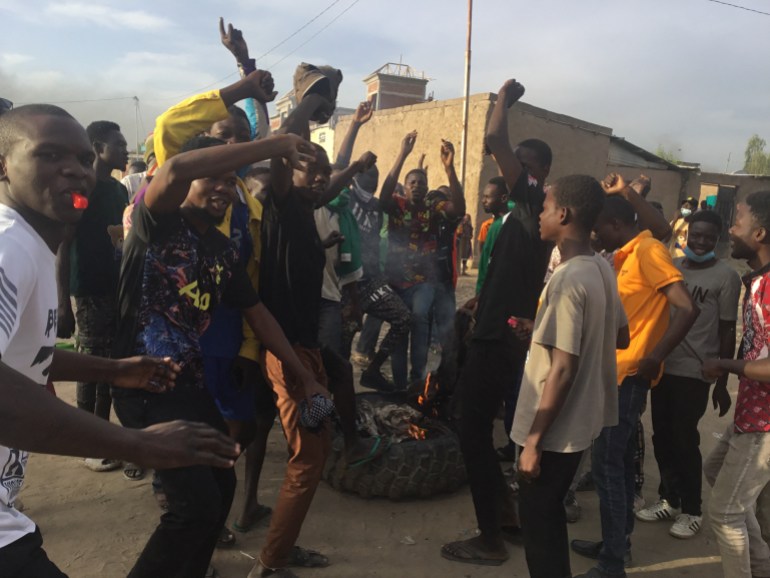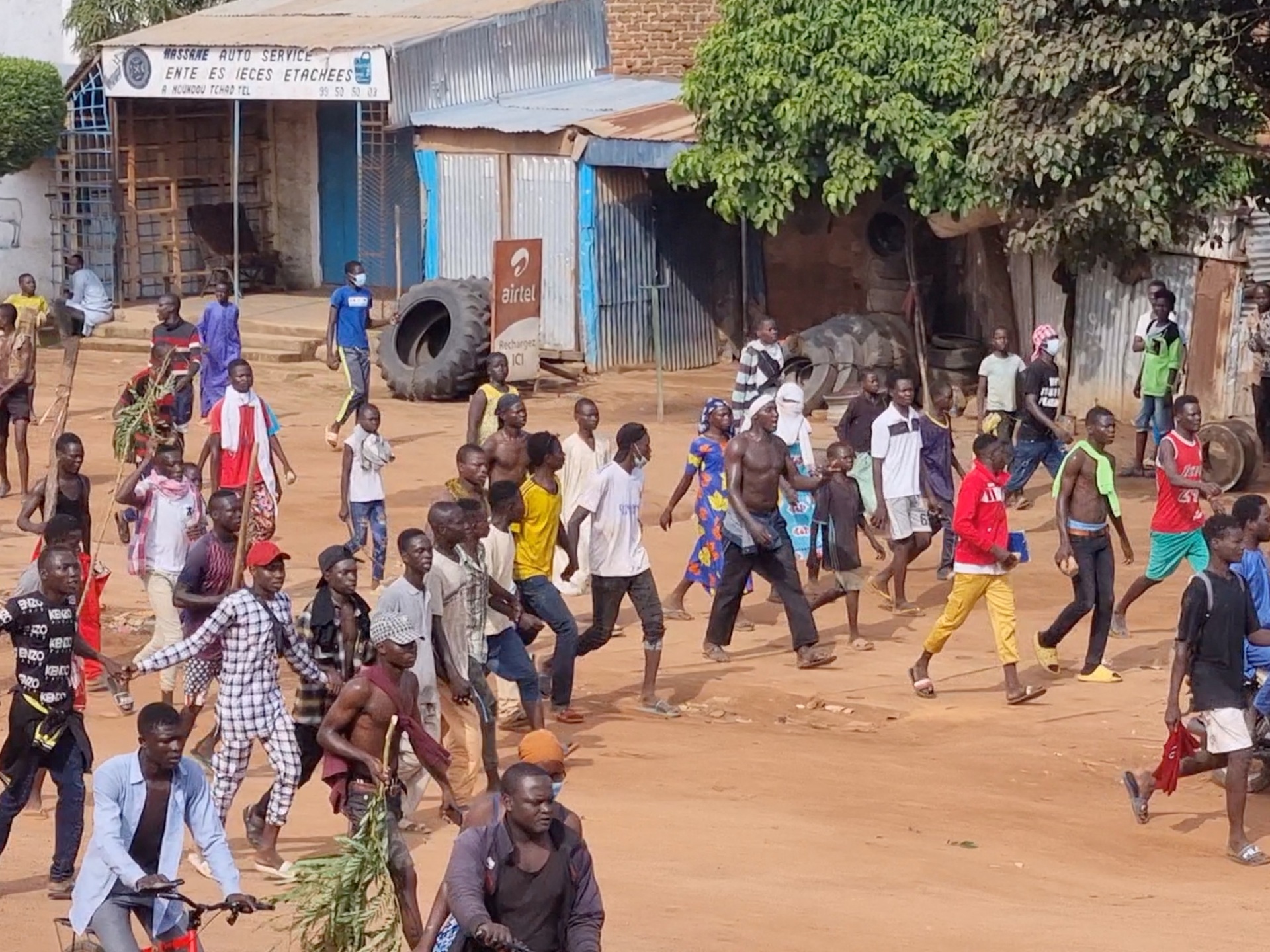Demonstrators gather in N’Djamena to mark the date when the military had initially promised to hand over power.
Police in Chad’s capital N’Djamena have clashed with demonstrators who defied a protest ban to demand a quicker transition to democratic rule.
Hundreds of people took to the streets on Thursday to mark the date when the military had initially promised to hand over power – a period that has been extended for another two years.
The country has been rocked by a political crisis since longtime President Idriss Deby was killed on the battlefield in April 2021 while visiting front-line troops.
Mahamat Idriss Deby, his 38-year-old son, was then installed by the military as interim president. He had initially promised not to take part in elections that would follow an 18-month transition to civilian rule but as the deadline neared, a nationwide forum staged by Deby reset the clock.
On October 1, it approved a new “maximum” 24-month timeframe for holding elections. It also named Deby “transitional president” and declared he could be a candidate in the poll. Deby was sworn in on October 10, and later appointed a so-called government of national union headed by Prime Minister Saleh Kebzabo.

On Thursday, palls of black smoke could be seen in some parts of N’Djamena and the crack of tear gas grenades could be heard, news agencies reported. Posts on social media also said live bullets were fired.
Several protesters were wounded as police used force and tear gas to break up gatherings of about 100 people throughout the city, Reuters news agency reported.
The headquarters of Kebzabo’s UNDR party was also attacked by demonstrators “and partially burned down”, UNDR Vice President Celestin Topona told AFP news agency.
There were also reports of barricades being set up in several districts and tyres being set alight in the main avenues to block traffic.
There was no immediate official word on casualties.
Security forces have cracked down on several civil society and opposition-led protests denouncing the military takeover and France’s backing of the transitional government, at times killing people in the crackdown.
In May, police fired tear gas and used water canon to disperse anti-French protests that saw the destruction of French-linked businesses.
France, which colonised Chad in the past, condemned Friday’s violence, which “notably [featured] the use of lethal weapons against demonstrators”.
“France is not playing any part in these events, which lie strictly in Chad’s domestic political domain,” the foreign ministry said.
“False information about France’s purported involvement is baseless.”
